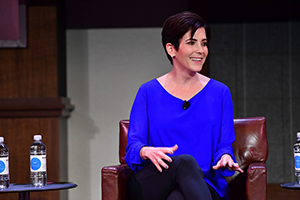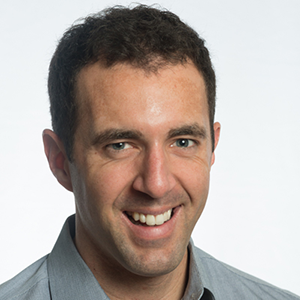Benefits
Paid Leave for Caregivers Being Used to Attract Millennials
By Rita Pyrillis
May. 27, 2019
As the demand for family friendly benefits grows, employers are responding by offering paid leave to new parents.
While that’s good news for families, a rapidly growing segment of the workforce is often overlooked — employees who are caring for an aging parent, an ailing spouse or other loved one.
About 40 million people in the U.S. are caring for an adult family member and 60 percent of them are employed, according to a 2015 report by AARP. And an increasing number are stepping into that role at a younger age. About a quarter of all caregivers are millennials ages 18-34, according to AARP’s research.
That is why a small but growing number of employers are expanding their family leave policies and offering paid leave to employees caring for a loved one, whether it’s a child, a parent, a spouse, or an in-law or grandparent.
“Caregiving comes in all different forms,” said Jen Fisher, managing director of wellbeing at consulting firm Deloitte. “It’s not just about bringing a child into the world. The dynamics of caregiving and the definition of family have changed.”

In 2016, Deloitte began offering 16 weeks of paid leave to full-time employees caring for a family member. Leave can be taken all at once or at a minimum, in three-day increments, according to Fisher. Previously, only new parents were eligible for paid leave.
“Caregiving for someone who is sick ebbs and flows,” she said. “If you’re caring for an elderly parent at home, one week there’s a lot going and on other days you’re not needed 100 percent. You can build your caregiving needs around that. It’s a really flexible program.”
Under the 1993 Family Medical Leave Act, private employers with more than 50 employees must provide 12 weeks of unpaid leave, but some employers are going beyond what’s required in order to attract younger workers.
“Caregivers are getting younger,” said Kathleen Kelly, executive director of the Family Caregiver Alliance, a nonprofit research and policy organization that supports caregivers. “There are many more millennials and Gen Xers caring for a parent or grandparent. It’s a byproduct of baby boomers having kids later. Caregiving has changed generationally. Employers need to wake up to this.”
More than half of millennial caregivers are the sole provider for an elderly family member, providing an average of 26 hours of care each week — the equivalent of a part-time job, according to a 2018 study by the AARP Public Policy Institute.
Yet, most do not feel supported at work. They are less likely to tell a supervisor they are caring for a family member or to discuss it with co-workers, the study showed.
In addition to providing paid leave, employers need to better understand the challenges that caregivers face, said Kelly.
“Issues around children have become more or less accepted, but not with eldercare,” she said. “If you say, ‘I have to take my mom to a doctor’s appointment,’ people think, ‘Can’t she do it alone?’ It doesn’t have the same urgency or importance.”
According to AARP Public Policy Institute, about 100 major U.S. firms have adopted or expanded paid family leave over the past three years, but only 20 percent made it available to family caregivers.
That is likely to change, according to Candice Sherman, CEO of the Northeast Business Group on Health.
More than half of millennial caregivers are the sole provider for an elderly family member, providing an average of 26 hours of care each week.
“People are living longer, there are gaps in the health care system, employees are more dispersed geographically, so they are caregiving from afar. Large employers are aware,” she said
The vast majority of employers surveyed by the Northeast Business Group on Health in 2017 agree that caregiving will become an increasingly important issue over the next five years, and nearly half cite caregiving as one of their top 10 priorities.

“You’re seeing companies expand paid leave but they are also looking for ways to support caregivers and that creates an opportunity for companies like ours,” said Michael Walsh, CEO of Cariloop, a platform that enables employees to access caregiving resources. “With our services, you’re not just giving people time off but giving them the tools they need to figure out things they don’t understand. We didn’t feel that a company’s health plan or EAP had the coverage needed for the long-term or took into account all the barriers involved with caregiving.”
Walsh, who launched the Texas-based company in 2013, said that younger workers are driving the interest in support for caregivers in the workplace.
“A major factor is a wave of millennialism, which is about feeling supported and making sure that your company empathizes with what’s important to you,” he said. “We can’t just check the boxes. We have to go further and send a message that we care about you and your family.”
Schedule, engage, and pay your staff in one system with Workforce.com.
Recommended
Compliance
Minimum Wage by State (2024)federal law, minimum wage, pay rates, state law, wage law compliance
Staffing Management
4 proven steps for tackling employee absenteeismabsence management, Employee scheduling software, predictive scheduling, shift bid, shift swapping
Time and Attendance
8 proven ways to reduce overtime & labor costs (2023)labor costs, overtime, scheduling, time tracking, work hours
